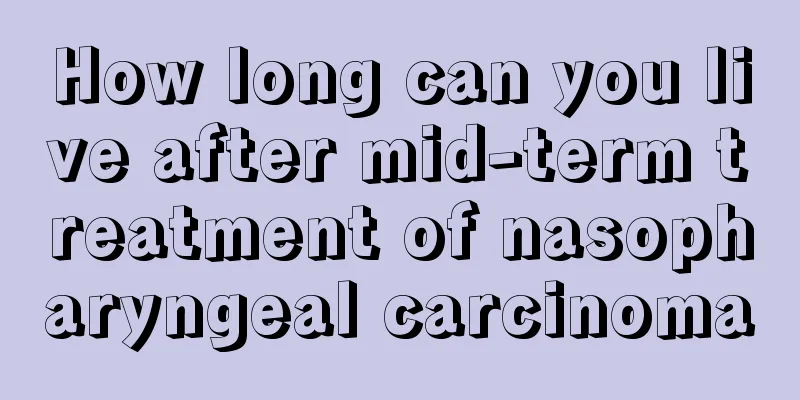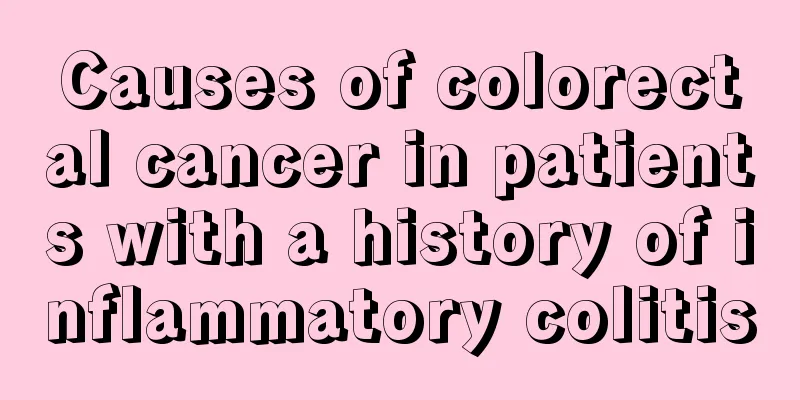How long can you live after mid-term treatment of nasopharyngeal carcinoma

|
After mid-term treatment of nasopharyngeal carcinoma, the patient's survival period varies depending on individual differences and treatment effectiveness, and the 5-year survival rate is usually between 60% and 80%. Early diagnosis and standardized treatment are the key to improving survival rates. Treatment methods include radiotherapy, chemotherapy, and targeted therapy. 1. Radiotherapy is the core means of mid-term treatment of nasopharyngeal carcinoma. The use of intensity-modulated radiotherapy technology can accurately irradiate the tumor and reduce damage to surrounding normal tissues. Radiotherapy is usually used in combination with chemotherapy to improve the efficacy. Commonly used chemotherapy drugs include cisplatin, paclitaxel, etc., which can inhibit the proliferation and spread of tumor cells. Targeted therapy, such as the use of cetuximab, can accurately attack specific molecules on the surface of tumor cells to further improve the treatment effect. 2. During treatment, nutritional support and quality of life management are crucial. It is recommended to adopt a high-protein, high-calorie, easily digestible diet, such as eggs, fish, milk, etc., to enhance immunity. Avoid spicy and irritating foods to reduce irritation to the mouth and throat. Appropriate light exercise, such as walking and yoga, can help relieve fatigue and improve mood. Regular psychological counseling can relieve anxiety and depression and improve treatment compliance. 3. After treatment, patients need regular follow-up to monitor tumor recurrence and metastasis. Follow-up includes nasopharyngeal endoscopy, imaging examinations such as CT, MRI, and blood tumor marker detection. If abnormalities are found, the treatment plan needs to be adjusted in time. Long-term follow-up helps to detect and deal with treatment-related complications early, such as radiation stomatitis and hearing loss, and improve the quality of life. After mid-term treatment of nasopharyngeal carcinoma, the patient's survival is affected by many factors, including tumor stage, treatment response, individual differences, etc. Standardized treatment, nutritional support, psychological counseling and regular follow-up can significantly improve the survival rate and quality of life. Patients should actively cooperate with treatment, maintain good living habits and mentality, and strive for a better prognosis. |
>>: What tests should be done to prevent breast cancer
Recommend
A simple analysis of the causes of endometrial cancer
We all know that cancer is a very terrible diseas...
How to treat early stage nasopharyngeal cancer
Early nasopharyngeal carcinoma clinical recommend...
Can chemotherapy for endometrial cancer prolong life? Analysis of the causes of endometrial cancer
What should women do if they have endometrial can...
Why do I vomit as soon as I drink alcohol?
In daily life, drinking has become an indispensab...
Why does thyroid cancer not affect life expectancy? Is thyroid cancer easy to treat?
In traditional concepts, thyroid cancer is a type...
Ingredients of the mask
Facial masks are commonly used by us. There are m...
What are the factors that affect sleep? Pay attention to these things
Good sleep quality is very important for people&#...
What's wrong with my forehead being cold
Many people often feel a cold forehead in their d...
I woke up in the middle of the night and couldn't fall asleep again_I often wake up in the middle of the night recently
During the day, after a busy day of work or study...
How to avoid lung cancer? Five tips to help you prevent lung cancer
The main cause of lung cancer is environmental fa...
How much does minimally invasive surgery for pancreatic cancer cost
Pancreatic cancer is a very difficult malignant t...
How is skin cancer transmitted
Many patients and friends are always worried abou...
Is the placenta getting thicker?
When a woman is in the middle or late stages of p...
Can dark circles be removed?
Dark circles are a very common symptom. Many peop...
Can primary lung cancer be treated with gamma knife? Effective treatments for primary lung cancer
Primary lung cancer can be treated with gamma kni...









